Translations 677
Venezuela: A Liberating Vote

A Liberating Vote, Against All Odds
This Sunday’s presidential elections in Venezuela are being held under a rarely seen siege, and will once again test the foresight and courage of those who oppose foreign intervention.
Posted: Saturday 19th May 2018 | 08:51:34 PM
 By Marina Menéndez Quintero
By Marina Menéndez Quintero
marina@juventudrebelde.cu
A CubaNews translation.
Edited by Walter Lippmann.
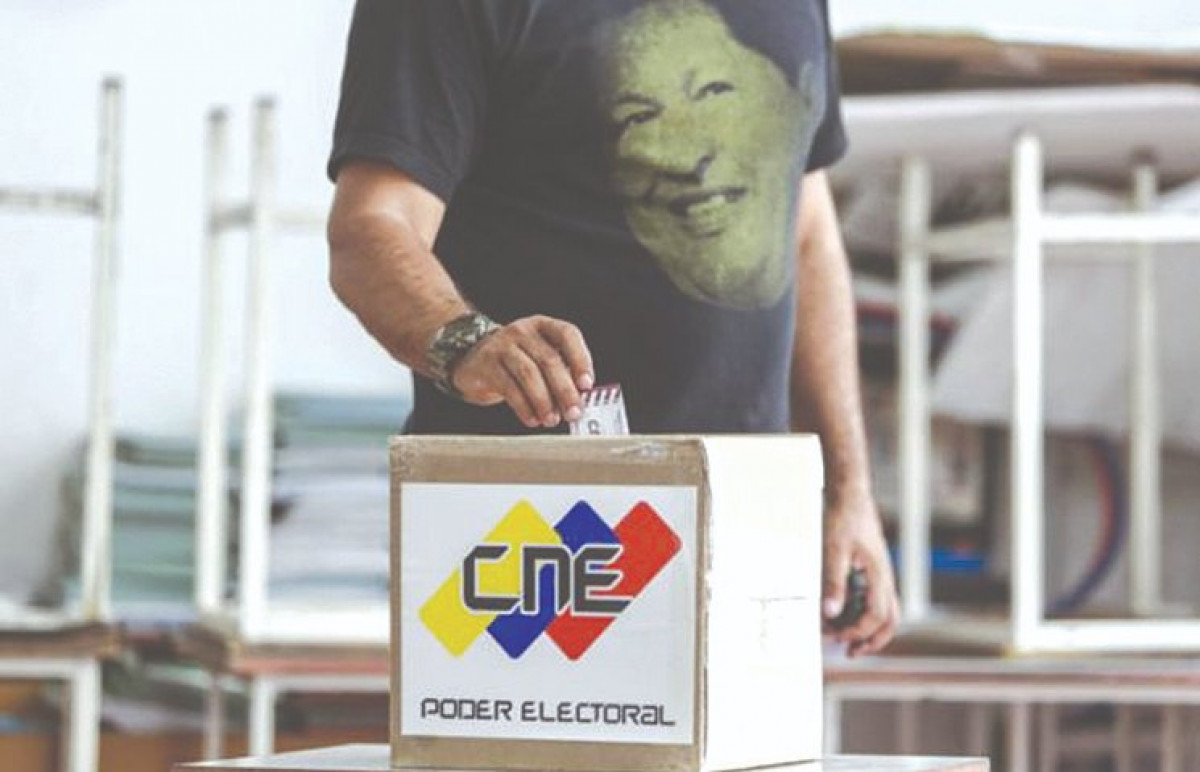
The Chavista legacy will also be present at the polls. Author: Héctor Planes/Latin American Summary Published: 19/05/2018 | 08:34 pm
NOT in vain Nicolás Maduro, a candidate of the Bolivarian forces who seeks re-election, has said that the main task of another term will be in the economy.
This Sunday’s elections in Venezuela are taking place under a foreign siege rarely seen, largely responsible for the narrow economic and financial situation, while the lack of supplies, rising prices and emigration are being manipulated to blame the Bolivarian executive for a crisis that it has not created, but that other war.
In addition to the U.S. sanctions, which have been preventing transactions with the main Venezuelan company – PDVSA – since August. There has been pressure from a European Union that is questioning the presidential elections along with more than a dozen Latin American nations, which are also following a political strategy forged in Washington: to ignore and illegitimize the elections, the only way which the Bolivarians can peacefully defeat the conspiracy against their political, economic and social system.
And the age-old U.S. gamble to justify armed aggression has been defeated, so far. Thus, the falcons also have their sights set on the elections.
At the international level, their appetites found a fence in the countries of the Caribbean and the members of ALBA which, within the framework of the OAS, have prevented the completion of the interventionist stratagem based on the allegation of a “lack of democracy” in Venezuela.
That speech was later accompanied by questioning of the calling of these presidential elections, under the argument – equally invalid and interfering – that they were premature. After using the issue to attack Latin American and Caribbean unity with the formation of the anti-Venezuelan Lima Group, ago the OAS three weeks ago still called for an extraordinary meeting of its executive council to implement new measures of punishment against Caracas.
Of course, such a position used as a breeding ground the most twisted right-wing opposition within the Mesa de la Unidad Democrática (MUD). Their leader, Julio Borges, served the diners a snack on a plate with the frustration of the dialogue he had with the government in the Dominican Republic at a time when, as he said, the agreements were ready.
It could not be surprising that these U.S. acolyte parties, after the lists of candidates for the presidency came out, were absent. It was the only way they had of calling the electoral tournament illegitimate. Now they now accuse it of being fraudulent, since three opposition candidates (Henry Falcón, from Avanzada Progresista-AP, Movimiento al Socialismo-MAS and the Partido Socialcristiano-Copei; Reinaldo Quijada, from Unidad Política Popular 89-UPP89; and Javier Bertucci, independent) inflicted a defeat on them when they registered [to participate] in the electoral battle against Maduro.
But their reluctance to nominate candidates could also have another cause: the division of positions in the face of some elections that some of the MUD parties rejected and others wanted to embrace, which is why they could not be able to run with a single candidate either.
Meanwhile, the imperial desire for intervention encountered decisive obstacles, from Venezuela’s borders inwards. These included in the lucidity and courage of the more than eight million citizens who, in July 2017, came to vote for the Constituent Assembly and in whom, later, they gave a large majority to the candidates of “Chavismo” during the gubernatorial elections, and in that of mayors.
They stopped the Manichean discourse of imperialism and those who join it, about the alleged political isolation of Nicolas Maduro within the country. What “dictatorship” was that?
It is that same long light that must be present today to that part of the electorate that wants peace and stability, but also a better life for Venezuela.
To understand it in the midst of so much media harassment and daily narrowness will be as compelling a test of consciousness as the vote for the Constituent Assembly was.
If it then threatened a violence that the Bolivarians had the courage to stoically endure, so as not to create chaos and offer a stepping stone to intervention, the scenario today, amidst economic scarcity and the financial crisis, is equally overwhelming.
Community social programs such as the Local Councils for Supply and Production (Clap) have been the government’s alternative for alleviating the lack or increase in the price of basic food products, at the mercy of right-wing entrepreneurs.
Meanwhile, in the external area, Caracas was seeking respite with a new currency: the Petro, whose digital character allows it to carry out the necessary transactions and circumvent the banks supervised by the powerful OFAC (U.S. Office of Foreign Assets Control).
However, this has not been enough to stop an aggression that will only be satisfied with the overthrow of the Bolivarian Revolution. Until 15 days ago, US Vice President Mike Pence called on the countries of the region to “sanction” Nicolas Maduro.
Hence the necessary role of the masses, and the importance of these elections. No “dictation” of foreign powers can have more force and more weight than the vote of the people. Don’t those who attack claim to defend democracy?
However, the political elites of the hemispheric right and the State Department will try to disregard any outome that may be the result of the Bolivarian victory.
It will be necessary to see how the nations captured by the White House in its campaign react if the vote in favor of Maduro and the Revolution were as profuse as the polls showed.
Attendance at the polls will also be crucial to certify the popular support of these elections. The last call of the most reactionary in the divided and almost non-existent MUD has been to abstain, while the Bolivarian forces said they aspired, in principle, for ten million votes; a figure, in fact, high, taking into account that the historical level of the Bolivarian forces in elections is just over eight million votes.
Of course, the electoral roll has increased since Bolivarian leader Hugo Chávez obtained 8.1 million votes in 2012 against right-wing Henrique Capriles Radonski. In those historic elections, just over 18 million Venezuelans were eligible to vote. Today, more than 20 million people are registered. Only they can attest to their democracy.
Against all odds, the presidential elections are being held this Sunday to assert national sovereignty and, like so many other times in that country, morer than its future will be decided.
Ultimately, achieving the defeat of the Bolivarian Revolution is the “turning point” that right-wing hemispheric forces are seeking to achieve. They aim to ensure, as in the “golden times” of Francis Fukuyama, that the end of history has come and that in Latin America the “backwards march” has taken place… Even if once again it is the wrong prediction.
This election
More than 200 personalities from institutions and different countries around the world are part of the Accompanying Mission that will testify to this Sunday’s elections.
Today, the members of the legislative councils of the various states and municipalities are also elected and nominated by various political organizations at the national and territorial levels.
This is the 24th election in Venezuela in the last 18 years.
Cuba Will Make an Exhaustive Follow-Up

Cuban government make an exhaustive follow-up on the investigation of the plane crash
Army General Raúl Castro, First Secretary of the Communist Party of Cuba, and the President of the Councils of State and Ministers, Miguel Díaz-Canel Bermúdez, have led the decision-making process in the face of this regrettable event.
———————————————————————————————————————————-
Author: Yeilen Delgado Calvo | nacionales@granma.cu
18 May 2018 20:05:57
A CubaNews translation.
Edited by Walter Lippmann.
The speed and efficiency of the competent authorities and the discipline and solidarity of the population following the 12:08 p.m. plane crash in Havana on Friday – when a Boeing 737-200 leased by Cubana de Aviación was dropped to the ground at the time of takeoff – were highlighted from the scene by Miguel Díaz-Canel Bermúdez, President of the Council of State and Ministers.
The First Secretary of the Central Committee of the PCC, Army General Raúl Castro Ruz, who is recovering satisfactorily from a recent surgical operation, scheduled in advance to suppress a hernia, is keeping abreast of the situation and has given the relevant indications. He also asked to convey his condolences to the families of the victims of the catastrophic accident.
Diaz-Canel offered, on behalf of the Government and the Party, his condolences to the families of the victims. “All the measures planned for this type of event have been taken, the facts are being investigated and all the information will be given. No centres or homes were damaged,” he said.
In the afternoon, a government meeting was held, chaired by Díaz-Canel and Salvador Valdés Mesa, first vice-president of the Councils of State and Ministers, during which, together with the ministries and bodies involved, the event was characterised and evaluated.
After that meeting, the highest authorities of the Ministry of Transport (Mitrans) informed the press that on the national flight DMJ 0972, which was traveling from Havana to Holguín, 104 passengers and one infant were traveling, of which five were foreign citizens and the rest were Cubans. The six crew members were also foreigners.
Eduardo Rodríguez Dávila, first vice-minister of the Mitrans, reported that three people were rescued alive and are being cared for, but their condition is very serious; they have not yet been identified. In addition, he said that the plane fell to the ground in an uninhabited area between the José Martí airport and Santiago de Las Vegas.
A commission of inquiry, chaired by the Institute of Civil Aeronautics, has been set up to carry out an exhaustive investigation; with the collaboration of the Ministry of the Interior, the site has been preserved. The process of clarification will be complex, he said, and has been negatively marked by heavy rains. However, all the assurances are available to follow it up.
The Ministry of Public Health also created the conditions to care for the families at such a difficult time, with the help of psychologists and other professionals with experience in post-traumatic scenarios, and the Ministry of Tourism will guarantee them accommodation in the capital.
The provincial governments have been responsible for informing them of the news and ensuring its transfer to help identify the remains, which is expected to be difficult. At the end of the personalised notification, the flight manifest shall be made public.
Adel Yzquierdo Rodríguez, head of Transport, referred to the solidarity of the people of Boyeros, who arrived on the scene moments after the impact. “One survivor complained, and people hurried to remove the obstacles to reach him,” he said.
He also praised the professionalism of the Airport Fire Command and the other Rescue and Rescue personnel, who acted quickly and sensitively, and explained that the protocol for situations of this type worked as planned. He also stated that the management of the Mitrans was very close to him at a routine meeting, and arrived at the site immediately, as were several ministers and leaders in Havana.
“At the time of the accident, the post was activated for emergency situations and the tracks were closed for review. Minutes later, after seeing that there were no problems in them, the authorization was given to resume operations and the airport regained its vitality,” said the Minister of Transport.
Systematic information will be provided to the press and the public, and the highest party and government authorities will check the course of the investigations.
The Party, the Government, the Mitrans and the Civil Aeronautics accompany the pain of the loved ones of the victims, ratified Yzquierdo and Rodríguez Dávila.
Addicted to Violence

The United States is a Country Addicted to Violence
Twenty weeks in 2018 and 22 shootings in schools where students appear to have been born to kill or be killed
 By Juana Carrasco Martin
By Juana Carrasco Martin
juana@juventudrebelde.cu
Posted: Saturday, May 19, 2018 | 10:49:46 AM
Translated and edited by
Walter Lippmann for CubaNews.
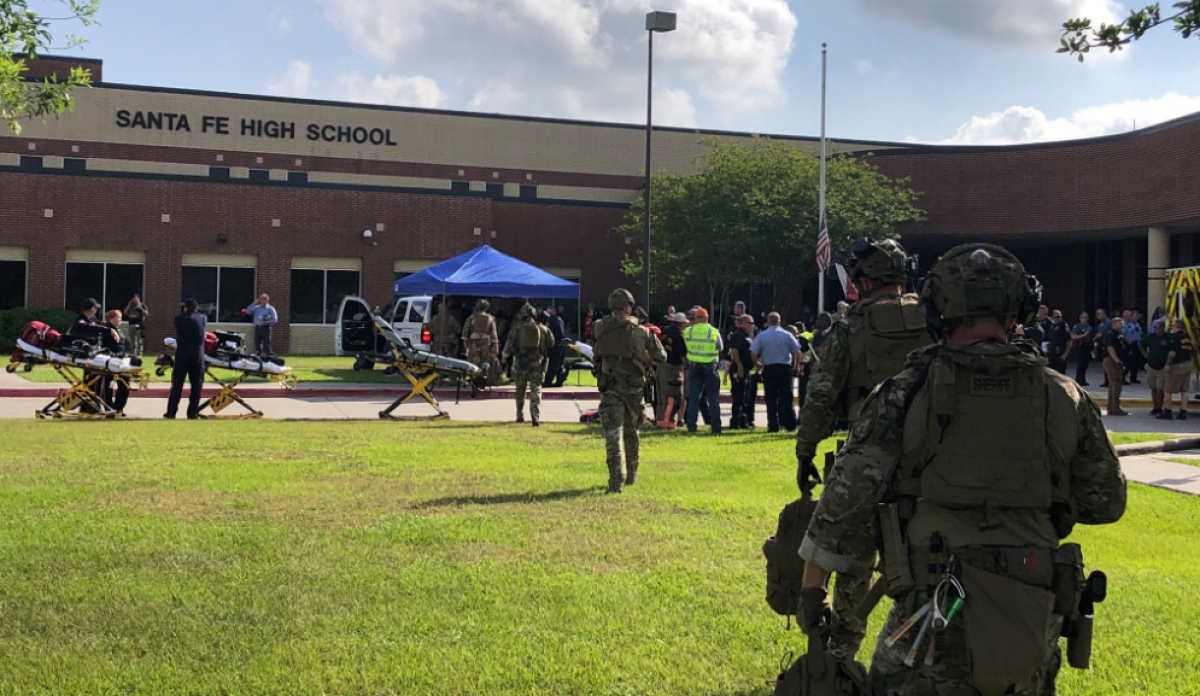
A 17-year-old student said to be bullied by his classmates is the assailant Author: Twitter Posted: 19/05/2018 | 10:33 am
This Friday, at least ten homes in Texas did not see their children return from school. A shootout at Santa Fe High School at 7:40 in the morning resulted in the tragic death of 10 students and one teacher, and an as yet undetermined number of wounded among its 1 400 students.
A witness told KTRK-TV in Houston, that a man pulled the fire alarm and when the students left their classrooms they were shot to death. There is one person in county custody and a second “person of interest” was also arrested, Houston County Sheriff Ed Gonzalez confirmed. Authorities also said that explosive devices were later found in and near the school.
Fear once again grips American schools and that society when, on average, there has been a weekly gunfight so far this year on a school stage.
A student who identified herself as Paige to the Houston television station, in addition to saying, “I was very, very scared,” said she was not surprised by the facts: “It’s been happening everywhere. I always felt it would finally happen here, too.
That is a terrible reality, confirmed by the facts. CNN reported that this is the third shooting in Santa Fe in the last eight days and 22 in the past 20 weeks of 2018. On Wednesday, at Dixon High School in Illinois, a former Dixon High School student opened fire near where graduation was taking place; and on May 11, a 14-year-old boy in Palmdale, California, began firing a semiautomatic rifle shortly before school began at Highland High and injured a person.
“We mourn the terrible loss of life and send our support to all those affected by this absolutely horrible attack,” said Donald Trump, who was at the annual meeting of the National Rifle Association in Dallas, Texas, on May 4, and gave the NRA the first speech by an American president since 1983 – following the example of Ronald Reagan, a cowboy of arms from Hollywood movies, who also became president.
The president, who received a contribution of $31 million from the powerful arms lobby for his election campaign, told them, “You supported me, and I’m going to support you now,” they have a “true friend in the White House,” and added, “I can proudly say to the NRA that I will never again disappoint it,” while describing them as “the true American patriots of the NRA who defend our rights, our freedom, and our great American flag.
The empire’s administrator defended the personal carrying of arms, insisted on his proposal to arm “highly trained teachers” to prevent further shootings in schools, and emphasized: “The Second Amendment will never be under siege while I am president.
A press report on that NRA meeting stated: “Paradoxically, weapons were banned from the convention site, under orders from the Secret Service, the elite police force charged with protecting the high authorities in the United States.
Trump has ignored student-led mass protests across the country to force tighter gun control following the tragic February 14 shooting in Parkland, Florida, in which a 19-year-old boy massacred 17 students and adults at Marjory Stoneman Douglas High School.
Now, another boy, identified as Dimitrios Pagourtzis, a 17-year-old student who is said to have been bullied by his classmates, is the assailant, and the media report that screenshots of his social networking accounts show pictures of weapons, photos with Nazi symbols and a t-shirt with the slogan “Born to Kill”, which – according to several students at the local CW39 television station in Houston – he was wearing at the time of the incident. The weapons used were his father’s and perfectly legal….
Nothing will stop this tragic nonsense as long as the interests of the arms industry prevail and the United States is an armed society, licensed to kill in its own backyard, formed by the absurd example that comes to it from a State that organizes, foments and executes wars against other peoples anywhere in the world, because it considers itself the police and executioner-avenger of the planet.
“Art helps to blur many barriers”

Daniela Vega: “Art helps to blur many barriers”
By: Martha Sánchez Martínez
May 17, 2018
Translated and edited by Walter Lippmann for CubaNews.
Chilean transsexual actress Daniela Vega has a lot of international awards at home, but she feels she lacks something like a human being and it is not a laurel, but a right.
The star of A Fantastic Woman, winner of this year’s Oscar for Best Foreign Film, would like to be able to stamp her name on her grave in her native country.
If I could, I would not take a jar, or my rings, or my glasses, when I die. I would take my name with me, because my name is what I am, it is what I did and what I wanted to do at the moment when I had to be alive, said the 28-year-old girl who at the age of 14 began her gender transition.
For Daniela, it is a question of dignity, which could be resolved by will.
Why not? Why not? Where is the dignity of the people then? Where is the creation of rights for human dignity? These and other questions make her one of the most valuable activists in the Lesbian, Gay, Bisexual and Transgender (LGBT) community today.
After making history as the first transgender woman to take the role of presenter at an Academy Awards ceremony, Time Magazine chose her in 2018 as one of the 100 most influential personalities in the world.
The performance of Marina Vidal, a trans woman, in Sebastian Lelio’s feature film, gave her a Platinum Award, a Caleuche, and Best Actress awards at the Palm Springs International Film Festival and the Havana International New Latin American Film Festival.
She also presented the Ibero-American Phoenix Film Award and the Best Actress Jury Award at the Lima Film Festival in Peru to the artist and lyrical singer.
Art, in general, helps to blur and soften many barriers, because art is a space for resistance, reflection and communion, she said during a colloquium held at the National Sex Education Center (Cenesex) in Cuba.
She travelled to this Caribbean island to participate once again in the actions of the Day against Homophobia and Transphobia, which takes place every May under the direction of the sexologist Mariela Castro.
According to Vega, in many countries of the Latin American continent, transgender people are destined for smaller tasks, not for political, strategic or community participation.
And I feel like why? is answered with the word fear, because some people are afraid to empower certain people, she said.
The Oscar won by A Fantastic Woman in the United States of course gave her satisfaction, and above all allowed her to raise her voice, but this girl can not stop thinking about others, ishe is not a unique case on the planet, she prefers to defend the opportunity to listen to everyone.
Why are some voices legitimate and others not? This has to do with the legitimacy we give to life, it should not be necessary to win an Oscar to be listened to, it is enough that there is only a will to listen, he said.
When will the States of the world understand that identity is an inalienable right?
In addition, she wondered where the power of States to support the childhood of transgender people lay, for we were not talking about someone who became a horse, a dog or a cat, but a human being, and she claimed it from her own experience, because she was a victim of discrimination in childhood.
Speaking of human beings, it would be nice to understand that human rights are not charged like a credit card, nor as a shopping mall, nor with a luxury car, human rights are taken to the grave, she said.
Who says that there are wars that are not legitimate, that there are unconquerable loves, that there are ungovernable bodies, asked this voracious reader of poetry who came to the world of acting in search of an instrument of self-understanding.
According to Daniela, giving dignity to people should be the political will of all States and governments, as they have supported the right to vote, among others, because the dignity of the human being is, together with diversity, its greatest wealth.
A Fantastic Woman launched her to stardom but it was not her first film work, as her film debut came in 2014 with The Visit, a film directed by Mauricio López Fernández, which allowed her to travel to various festivals around the world and gave her her first international awards as an actress.
At the end of this year, Vega will appear in a starring role in the film Un domingo de julio en Santiago, by Visnu and Gopal Ibarra, who invited her to perform as a femele lawyer.
She only answers with mystery a question from Prensa Latina about what she would be interested in doing in film:
“I like to surprise people, I prefer to surprise them,” she said.
These days, the artist is writing an autobiographical book, she is not ashamed of being a trans, but proud, and she suffers the obligation to travel with a masculine name on her passport, but she will not stop struggling to be recognized everywhere as who she is, and that is clear to her, simply Daniela Vega.
(Prensa Latina)
Daniela Vega on Cuba’s will to build bridges

Chilean actress Daniela Vega highlights Cuban will to build bridges
May 17, 2018
Translated and edited by Walter Lippmann for CubaNews.
In Pinar del Rio, Chilean transgender actress Daniela Vega, star of the film A Fantastic Woman (awarded the Oscar for Best Foreign Language Film), highlighted the Cuban government’s political will to build the dignity of life and bridges that unite.
The artist spoke with representatives of the press in Pinar del Río, the venue of the Cuban Conference against homophobia and transphobia, convened by the National Sex Education Centre (Cenesex) in an effort to promote respect for free and responsible sexual orientation and gender identity.
Vega recalled that from the first time she visited Cuba, her colors and the spirit of Cenesex caught her by keeping them beautiful and the island’s flame high.
What motivates me to come is the greatness of this country, she confessed while calling for taking the stones that others will use to build walls that separate and use them to build bridges that unite.
The Chilean actress thanked Cuba and its people for the reception and called on heterosexuals, homosexuals and transsexuals to overcome fear and act convinced that colors can mix and be bright and radiate more light.
Let us fight so that the children of the future are not rejected as we were, she concluded.
(With information from Prensa Latina)
An Ode to the Lenin School
An Ode to the Lenin School
Translated and edited by Walter Lippmann for CubaNews
By Dario Alejandro Escobar
The nostalgic adult would like to go back over his memories and relive his times of glory and pleasure. The Lenin has on its students and teachers that magical effect that falls in love and compromises, perhaps ridiculous for the uninitiated in this youth brotherhood.
It doesn’t matter if they graduated, if they stayed a year or a month: the time argument is irrelevant. Because if you had the opportunity to live there, even if it was just a short period of time, you will be fascinated by the wonderful woman who deflowers you to become a different human being, almost always better.
The Vocational Institute of Exact Sciences Vladimir Ilich Lenin is forty-four years old today. It is easy to write and quicker to say, but it would be unfair to think of the thousands of students who have passed through their classrooms and hostels as mere data for a report.
The Lenin must be evoked in the new sensations of the first day as we walk, aisle after aisle, through its accomplice buildings. In the furtive and deep loves, those that shake our chest and make our face blush if we remember them. In the tears of many in the face of powerlessness for not understanding enough a subject that diminished – let’s be honest and admit it now – academic qualification and also personal pride. In the “infamous” guards on weekends; in the passes “removed” by the accumulation of reports; in the chaotic recreations, as close as possible to the meaning of “party”, even after the ones experienced in my special college years.
In those recreational spaces of the Lenin I learned to dance casino and to chant Silvio Rodríguez with any deflecting guitar. In the Lenin I smoked for the first time and in its nights I wrote my first attempts at literature.
The School has invariably shown some elitist inspiration. There’s no point in denying it. From the ways to get in, to the social and academic division of its groups, everything pointed towards excellence and exclusivity; but it has also had an avant-garde vocation. It wanted – and in my opinion it has succeeded in general – in training the most integral pre-university students. The one who knows the natural and exact sciences in above-average detail, and in turn has read a good number of the classics of literature or traditional and contemporary music. At least it was like that back in the day when I studied there
For being the avant-garde school that sheltered us, we venerated it. For developing the potential skills of your students, for making us grow from study, work and responsibility towards ourselves.
It is in the human and intellectual quality of its best students that the magic of the Lenin School resides. More than a decade after being abandoned by my fellow students, Vocations continues to graduate restless boys: boys who arrive at university with a desire to “eat the world”.
So much time later, and with a very important part of its graduates residing outside the country, parties are celebrated where people with antipodean differences in many aspects of life meet: ideological, sexual, and geographic, but united by the circular monogram very red with an atom in the center, worn in the sleeve of the shirt, or of the blouse, during the preuniversity.
I still find myself in the streets, in guaguas [buses], and more and more frequently on the Internet, people of my year, whom I greet with nothing else in common but to recognize us from that place. The school has remained engraved in the collective memory of its students as a great sect of friendship, a religion that few have renounced. A beautiful manifestation of memory grateful to the past.
These days I can’t get in to tour the school the way I want to. Bureaucratic reasons are holding me back. The Lenin is falling apart and there are those who justify laziness with incredible arguments. It hurts a lot but it doesn’t matter, because I have so much accumulated memory, so many friends scattered around, so many songs evocative of innocence, that no barrier can prevent me from feeling like the first time, a Lenin School student again and again when it comes to Graduation Day.
Against Harassment
 Against Harassment
Against Harassment
By Mónica Baró Sánchez*
Translated and edited by Walter Lippmann for CubaNews
No, you can’t exercise in peace on the Fifth Avenue promenade or in similar spaces without at least five men, if you’re lucky, bothering you, saying sloppy things and looking at you like a bloodhound with their tongues out. With the faces of morons.
If you stretch out because your leg and if you do sit-ups because your buttocks. They remember young boys leaving priest’s school after months of not seeing a woman.
Sometimes I feel like taking off a tennis shoe and hitting them on the head to see if I can kill them with some obsolete neurons until they start to behave like the men they should be. Or to go out one afternoon and start messing with them in the same way so that they feel how unbearable they are. Let’s see if they stop seeing and treating women as something to have sex with and discover that we are people, that we feel, that we think and, above all, that we have dignity.
I don’t want to be looked at like that anymore. That doesn’t raise my self-esteem. Being looked at as one thing humiliates me, assaults me. I don’t exercise for men, I don’t wear a short dress for men, I don’t paint my lips for men, I don’t dance and I don’t shake my butt for men, I don’t smile for men.
I do everything for myself and for myself. And I’m pretty hard to please. When I’m alone I keep doing all that. Because I like to like myself and when I stop liking myself I try to like myself again. Me to me. Not to anyone. I like that I like my body when I dance, my lips when I paint them, my hair when I let go, my thighs and my belly when I dress myself short and even my ligaments when I stretch.
Women deserve to be treated like women, not like orifices. No matter what we do or how we dress. I’m sure there’s not a single man who finishes his workout and needs to publish something like this. Peace for me today is that if a man is going to look at me he must look me in the eye. And be quiet. Because almost always, I say to the defenders of “compliments”, not to say that always, when a man says something to you on the street is not because he wants to get to know you and know your human values, but because he wants to humiliate you. So, peace.
Originally posted on myFacebook wall.
Finalist of the Gabriel García Márquez Prize for Journalism in the Text category in 2016.
US Must Ask Forgiveness
The U.S. Must Ask for Forgiveness
 By Manuel E. Yepe
By Manuel E. Yepe
http://manuelyepe.wordpress.com/
Exclusive for the daily POR ESTO! of Merida, Mexico.
Translated and edited by Walter Lippmann.
The U.S. House of Representatives passed a resolution in late July 2008 apologizing to African Americans for the years of slavery they have suffered.
This was the recognition by the U.S. House of Representatives of the injustice and inhumanity of the slave system and “Jim Crow”, as the period of intense racial discrimination between 1865, when slavery was officially abolished and the 1960s, was known in there.
At that time, the establishment was forced to take action against the nefarious racial discrimination system but, in some states more and in others less, it kept black citizens legally segregated from white people and limited their civil rights, even without the right to vote. This legal segregation was more inhumane and violent in the southern states than in the northern United States.
The name “Jim Crow” applied to that shameful period in American history was that of a comedian and singer named Rice, who composed and performed the song “Jump, Jim Crow” in 1828, about a black servant who danced while brushing his master’s horse. It is not clear why the term “Jim Crow” began to be used to refer to any entity that practiced racial segregation: “Jim Crow laws”, “Jim Crow schools”, “Jim Crow trams”. There were workplaces, universities, taxis, trains, buses, boats, canteens, restaurants, hotels, hospitals, health services, water fountains, prisons, nursing homes, barbershops, public parks, sports fields, circuses, fairs, theatres, cinemas, concert or party halls, libraries, beaches, swimming pools, waiting rooms, telephone booths, workshops, elevators, brothels, lines or queues, entrances and exits of buildings. Everything could be assimilated into to this U.S. form of apartheid.
Segregation applied to marriage, some professions, neighborhoods, churches and cemeteries. In some cities, Jim Crow martial law was imposed and blacks could not go out on the street after a certain hour at night. In the Jim Crow courts, whites swore with one hand on a Bible and blacks swore on a different copy of the same book..
Black people were excluded from the unions. They were not admitted to Jim Crow sororities, clubs and societies. Board games and sports involving physical contact between blacks and whites, including combat games such as boxing, were prohibited unless the opponent was a foreigner.
Add to this ignominious situation the violence with which the Ku Klux Klan, members of the John Birch Society, the White Citizens’ Councils and other elements of the American extreme right were acting. A real white terrorist system!
In the face of such outrages, the struggle of black Americans for their civil rights became increasingly intense. It generated such great leaders as Malcolm X and the Rev. Martin Luther King, Jr., as well as hundreds of martyrs, remembered or forgotten, from Black Power organizations and others who, in the 1960s, gave birth to a situation that appeared to be a precursor to a revolution.
Fear of reprisals by the empire and its control of the media limited the international denunciation of these abuses and global solidarity. The triumph of the revolution in Cuba, the rise of anti-imperialism and the ideas of social justice in Latin America encouraged the just domestic struggle of Black people. This coincided with the need for the recruitment of black soldiers for the asymmetrical imperialist war against Vietnam and all this forced the establishment to bury the Jim Crow system.
For the sake of national security, the empire made major reformist “concessions” in race relations in a country where the law was white, and there were white policemen, white judges, white mayors, and white actors and actresses on film and TV screens. Blacks were nearly always represented in submissive and complacent attitudes.
Prior to the request for an apology from the House of Representatives, the other branch of Congress, the Senate, passed another resolution in April 2008 apologizing for “the many cases of violence, abuse and neglect” suffered by Native Americans. The Senate also apologized in 1993 for the “illegal overthrow” of the Kingdom of Hawaii a hundred years earlier.
Yet humanity is still waiting for the U.S. to apologize and compensate so many nations on every continent whose democratic existence the U.S. has assaulted since it became an imperialist power in the early 20th century. And to do so with the promise never again to intervene in the internal affairs of other nations, as well as to respect the human rights of their own citizens of other ethnicities and ways of thinking.
May 17, 2018.
Rita Hayworth and Gossip

Rita Hayworth and the Globalization of Gossip
April 3, 2018
 By Rolando Pérez Betancourt
By Rolando Pérez Betancourt
Graduated in Journalism from the University of Havana in 1973. Graduate in French from the Institutes of Foreign Trade and Foreign Affairs. José Antonio Fernández de Castro National Prize for Cultural Journalism (1999), José Martí National Prize for Journalism for the work of life (2007). Journalist at the Granma Newspaper. Attends the weekly program “The Seventh Gate”. He is one of the sharpest film critics in Cuba.
A CubaNews translation. Edited by Walter Lippmann.
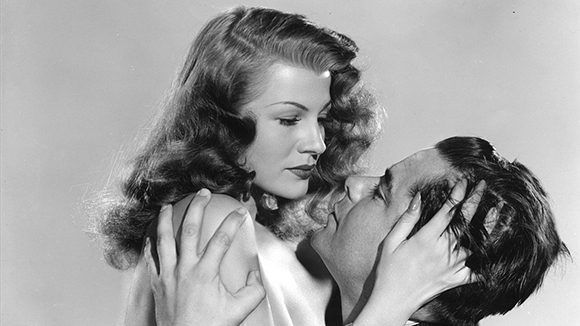
Rita Hayworth in her most famous role, alongside Glenn Ford in “Gilda”. Photo: American Cinematheque/ Los Angeles Times.
Increasingly, the globalization of gossip gains ground from the social and cultural magnitude.
“-Dig this!, Mrs. X divorced Mr. X after finishing her latest movie.”
“Yes, but he was already sleeping with somebody else.”
“With a He, or with a She?”
This is just an example of banal and depoliticized gossip in its comprehensive role of obliterating transcendental reasoning.
Back in the 50s, as a child, I learned about the subject — without understanding it then—by reading the glossy magazines collected by a cousin who, despite spending a fortune in red dye and high heels, never reached her dream of looking like Rita Hayworth and, by chance, marrying a prince from distant lands.
At the time, gossip about show-business celebrities was nothing compared to the explosive levels it reaches today in the huge and dominant information platforms of the Internet, where a headline about the latest mass killing at a school in the United States may rank equally, or below, the latest steamy dress exhibited by Jennifer Lopez, or any other actress with less artistic talent, but with enough curves, public life, or money to keep up with the hype.
These are myths and individual fame aimed at trivializing culture and monopolizing the attention of an audience eager to follow the bombastic life of the rich and famous, instead of the political, cultural or economic events that, in their fabric of human implications, could indeed influence their own lives.
The sensationalism irradiating from individuals is winning the battle from the social fact as part of the US-Americanization of the myth that –without landing craft or air strikes– invades and seduces millions of minds settled in Europe (also an exporter of those empty values), Asia, and Latin America.
“Information” maneuvers with the clear central objective to have de-politicization and banality govern the everyday life of an international society that –according to their plan– should become increasingly more individual and private, and less collective and social.
This cultural model based on sensationalism, the excessive transcendence of the image, and the exaltation of celebrities (true or fabricated), is aimed at focusing popular attention on egocentric principles with numbing effects. It has the same purpose – only now on a scale unimaginable in the mid 20th Century—that one day made my cousin try and fail to look like Rita Hayworth.
Let’s include ourselves

Let’s include ourselves, for schools without homophobia or transphobia
Mariela Castro Espín, director of the National Sex Education Center (Cenesex), urged this during the press conference of the 11th International Conference on Sex Education. edition of the Cuban Conference against Homophobia and Transphobia, which will run until May 18
Author: Yeilén Delgado Calvo
nacionales@granma.cu
May 4, 2018 21:05:20
A CubaNews translation.
Edited by Walter Lippmann.
For schools to be a place of love and inclusion, where ethical principles and references for life are built and reinforced, means preventing and confronting all manifestations of discrimination.
Teachers must therefore have the tools to identify situations of harassment, as well as the clarity and scientific culture to address these realities. In addition, the family should alert them to any experience of rejection, physical, verbal or psychological abuse suffered or referred by their child in the school setting, and reinforce the culture of respect from home.
Mariela Castro Espín, director of the National Sex Education Center (Cenesex), urged this during the press conference of the 11th International Conference on Sex Education. edition of the Cuban Conference against Homophobia and Transphobia, which will run until 18 May, to promote respect for free and responsible sexual orientation and gender identity.
Although the Cuban school stands out in the world for its levels of security, realities marked by mockery, physical or verbal abuse, situations of social exclusion and the use of a naturalized homophobic and sexist language must be made visible in order to overcome them, said Mariela.
The Director of Cenesex, an institution that celebrates its 30th anniversary, highlighted the support of the Cuban Party and Government in raising awareness among the population, educating them to overcome prejudices and moving forward, without ignoring resistance, in generating awareness and consensus. He also mentioned the alliances with Cuba’s Central de Trabajadores and the Ministry of Education, and said that the significance of Cuba’s projection for schools without homophobia or transphobia transcends its borders, since the island is a point of reference.
The agenda of the Conference gives relevance to the topics of formation, and the province of Pinar del Río will be the venue. Two emblematic events are to be held: the Gala, at the Karl Marx Theatre, on May 11 at 8:30 p.m.and the Conga and Diversity Festival, which this year begins at 6:30 p.m. May 12, and will go from Línea y Paseo to the José Antonio Echeverría Recreational Center.
Subscribe to Blog via Email
| M | T | W | T | F | S | S |
|---|---|---|---|---|---|---|
| 1 | ||||||
| 2 | 3 | 4 | 5 | 6 | 7 | 8 |
| 9 | 10 | 11 | 12 | 13 | 14 | 15 |
| 16 | 17 | 18 | 19 | 20 | 21 | 22 |
| 23 | 24 | 25 | 26 | 27 | 28 | |

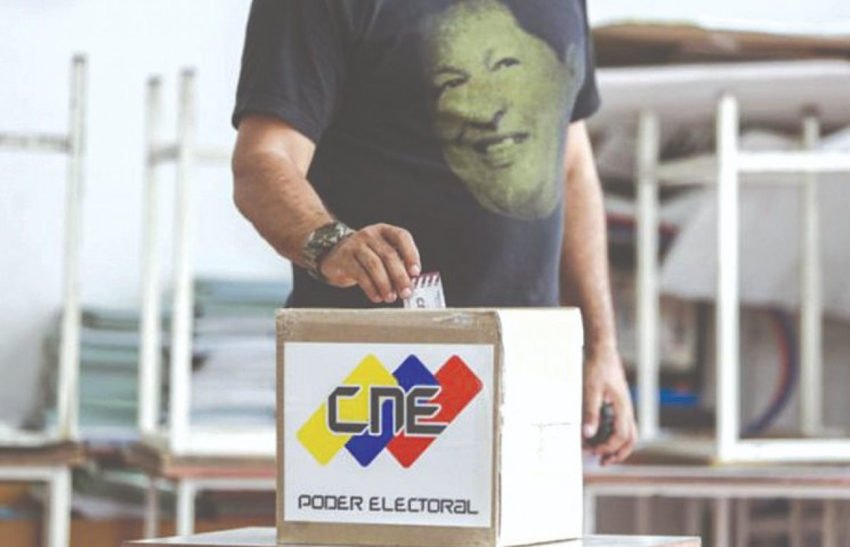

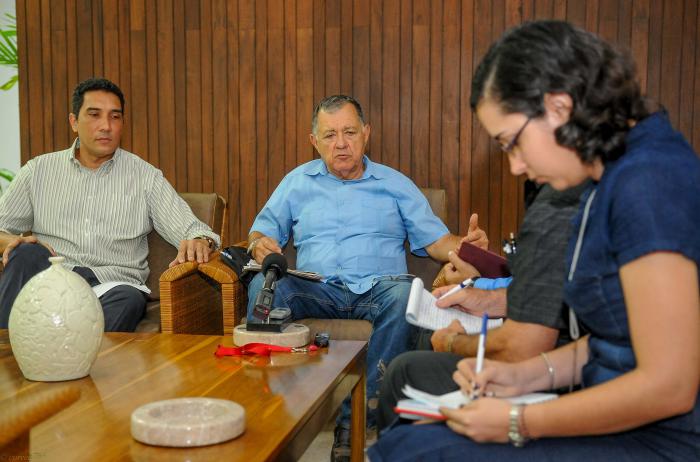
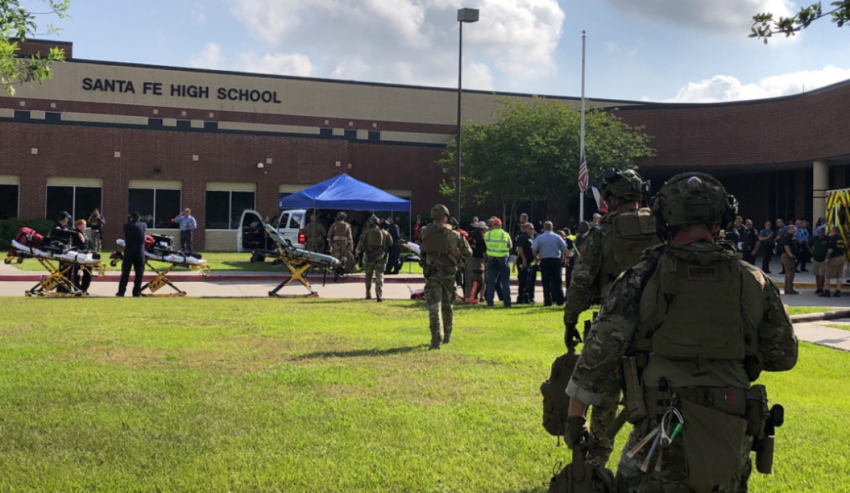
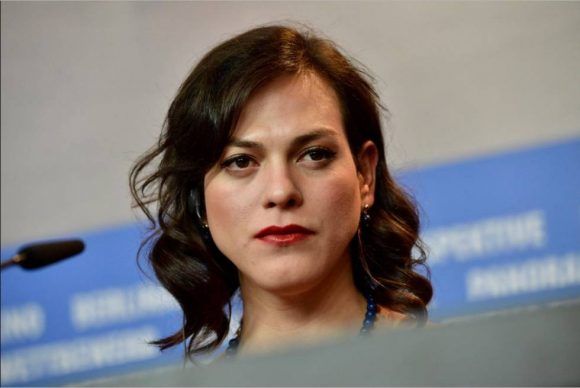

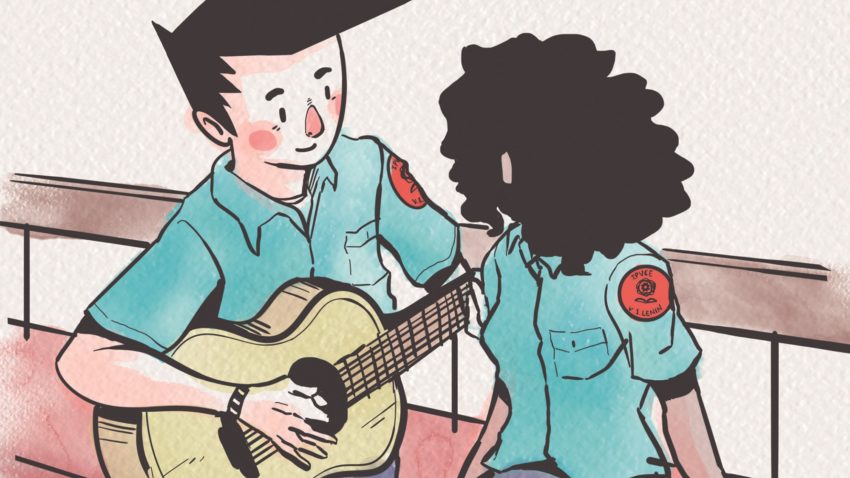
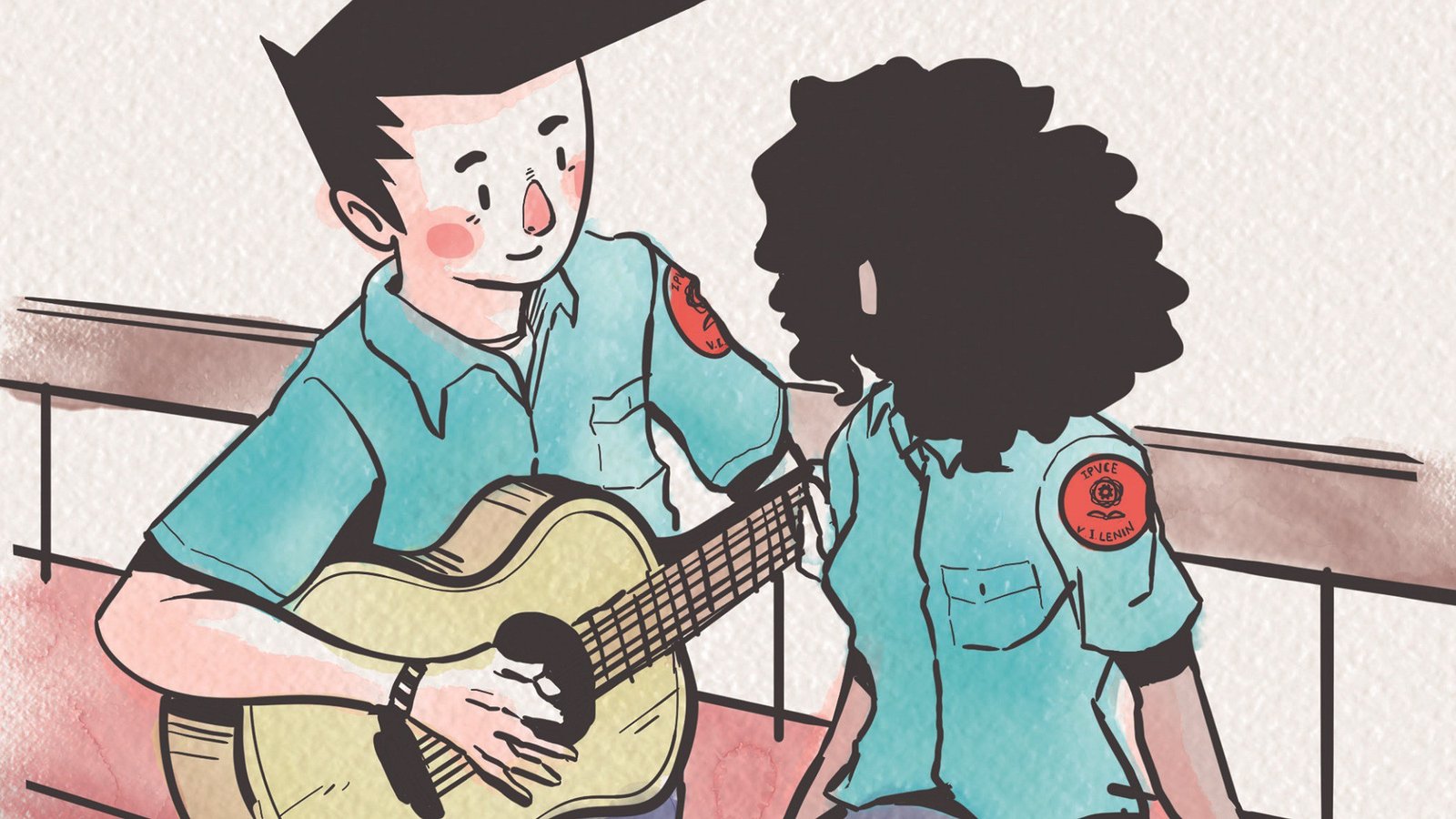




You must be logged in to post a comment.